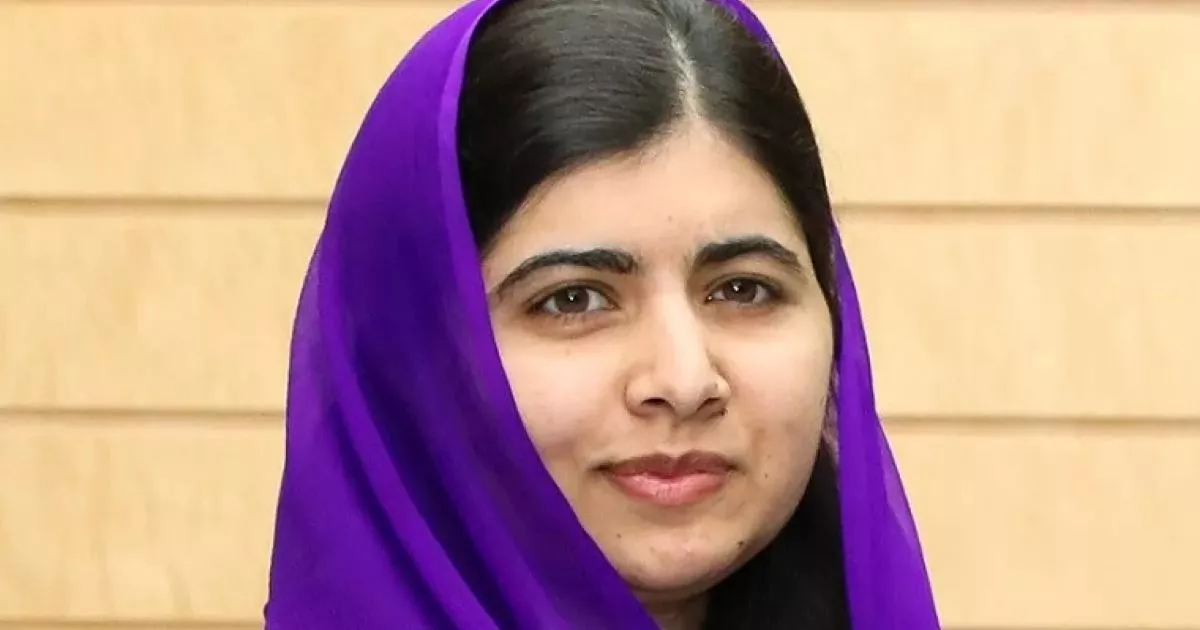Malala Yousafzai is a Pakistani activist advocating for female education, notably in the Swat Valley where the Taliban restricted girls' schooling. Surviving an assassination attempt for her activism, she became the youngest-ever Nobel Peace Prize laureate in 2014. Her advocacy has evolved into a global movement, solidifying her status as a prominent figure in human rights and education, especially for women and children, and has been described as Pakistan's most prominent citizen.
1979: Abdus Salam Receives Nobel Prize
In 1979, Abdus Salam was the first Pakistani to receive a Nobel Prize for Physics. Yousafzai is the second Pakistani to receive a Nobel Prize.
July 1997: Malala Yousafzai Born
In July 1997, Malala Yousafzai was born in Pakistan. She later became an activist for female education and a Nobel Peace Prize laureate.
September 2008: Speaking about education rights
In September 2008, Malala Yousafzai began speaking about education rights, giving a speech in Peshawar where she questioned why the Taliban was taking away her basic right to education.
January 2009: Taliban edict against girls' education
In January 2009, the Pakistani Taliban set an edict that no girls could attend school after January 15, in Swat. Malala Yousafzai also read excerpts from her blog in a local newspaper that day.
January 2009: Writing about annual exams
On January 24, 2009, Malala Yousafzai wrote in her blog about the uncertainty of annual exams due to the Pakistani Taliban's restrictions on girls' education.
January 2009: First BBC Urdu blog entry
On January 3, 2009, Malala Yousafzai's first entry was posted to the BBC Urdu blog, detailing her thoughts during the First Battle of Swat and the closure of her school.
February 2009: Streets of Mingora Deserted
In February 2009, Malala Yousafzai and her brother returned to their hometown of Mingora, where the streets were deserted. Their home had been robbed and their television was stolen.
March 2009: Last entry in blog
On March 9, 2009, Malala Yousafzai wrote about a science paper. Her blog ended on March 12, 2009.
July 2009: Return to Swat Valley
In July 2009, Malala Yousafzai's family returned to the Swat Valley after the Pakistani military pushed the Taliban out of the cities. She also met with Richard Holbrooke, pleading for help with education.
August 2009: Appearance on Capital Talk
On August 19, 2009, Malala Yousafzai made a second appearance on Capital Talk and she was interviewed on the national Pashto-language station AVT Khyber and the Urdu-language Daily Aaj.
December 2009: BBC blogging identity revealed
In December 2009, Malala Yousafzai's BBC blogging identity was being revealed in articles. She also began appearing on television to advocate for female education.
October 2011: Nomination for International Children's Peace Prize
In October 2011, Malala Yousafzai was nominated by Archbishop Desmond Tutu for the International Children's Peace Prize.
December 2011: Awarded National Youth Peace Prize
In December 2011, Malala Yousafzai was awarded Pakistan's first National Youth Peace Prize by Prime Minister Yousaf Raza Gillani. During the ceremony, she expressed her hope to found a national party to promote education.
2011: National Youth Peace Prize
In 2011, Malala Yousafzai received Pakistan's first National Youth Peace Prize for her activism and advocacy for education.
2011: Training with Aware Girls
In 2011, Malala Yousafzai trained with Aware Girls, run by Gulalai Ismail, to learn about women's rights and empowerment to peacefully oppose radicalisation through education.
October 2012: Yousafzai's Condition
By October 17, 2012, Yousafzai had emerged from her coma and was responding well to treatment, showing a good chance of full recovery without brain damage. Updates on October 20 and 21, 2012, indicated she was stable but battling an infection.
October 2012: Decision to Move Yousafzai for Treatment
On October 11, 2012, Pakistani and British doctors decided to move Yousafzai to the Armed Forces Institute of Cardiology in Rawalpindi, with a 70% chance of survival. Interior Minister Rehman Malik announced plans to move her to Germany for the best medical treatment as soon as she was stable enough.
October 2012: Gordon Brown Launches Petition 'I am Malala'
On October 15, 2012, UN Special Envoy for Global Education, Gordon Brown, visited Yousafzai in the hospital and launched a petition in her name, using the slogan "I am Malala", advocating for universal education by 2015.
October 2012: Assassination Attempt
On October 9, 2012, Malala Yousafzai was shot by a Taliban gunman while on a bus in Swat District after taking an exam. This assassination attempt led to an international outpouring of support.
November 2012: Edelman Provides Pro Bono Services
In November 2012, Edelman began providing pro bono press office services for Yousafzai, employing five people headed by speechwriter Jamie Lundie. McKinsey also continued to provide assistance.
November 2012: Arrests and Location of Mullah Fazlullah
In November 2012, six men were arrested for involvement in the attack on Yousafzai but later released due to lack of evidence. US sources confirmed that Mullah Fazlullah, who ordered the attack, was hiding in eastern Afghanistan.
2012: Planning Malala Education Foundation
In 2012, Malala Yousafzai planned to organize the Malala Education Foundation. She attended the International Marxist Tendency National Marxist Summer School and named Barack Obama, Benazir Bhutto and Abdul Ghaffar Khan as inspirations.
2012: Taliban agrees to kill Malala Yousafzai
In the summer of 2012, as Malala Yousafzai became more recognised, death threats increased. The Taliban held a meeting where they agreed to kill her.
January 2013: International Recognition
In January 2013, Deutsche Welle reported that Malala Yousafzai had become "the most famous teenager in the world" following the attempt on her life in October 2012.
January 2013: Yousafzai Discharged from Hospital
On January 3, 2013, Yousafzai was discharged from the hospital to continue her rehabilitation at her family's temporary home in the West Midlands, where she received weekly physiotherapy.
March 2013: Yousafzai Attends Edgbaston High School
From March 2013, Yousafzai began attending Edgbaston High School in Birmingham, an all-girls school, where she would continue her education until July 2017.
July 2013: Yousafzai Addresses United Nations
In July 2013, Yousafzai addressed the United Nations and had an audience with Queen Elizabeth II in Buckingham Palace, amplifying her message on the global stage.
July 2013: Brown Arranges Yousafzai's UN Appearance
In July 2013, former British Prime Minister Gordon Brown arranged for Yousafzai's appearance before the United Nations. Brown also requested that McKinsey consultant Shiza Shahid chair Yousafzai's charity fund.
July 2013: Yousafzai's 16th Birthday Speech at UN
On July 12, 2013, Yousafzai's 16th birthday, she spoke at the UN calling for worldwide access to education, in what was dubbed "Malala Day" by the UN. She led the first Youth Takeover of the UN, addressing over 500 young education advocates.
October 2013: Publication of "I Am Malala"
In October 2013, Malala Yousafzai's memoir, "I Am Malala: The Story of the Girl Who Stood Up for Education and Was Shot by the Taliban", co-written with Christina Lamb, was published and received various reviews.
October 2013: Yousafzai on The Daily Show
In October 2013, at the age of 16, Malala Yousafzai visited The Daily Show with Jon Stewart to promote her book, I Am Malala, discussing her assassination attempt, human rights, and women's education.
2013: Co-founding Malala Fund and Co-Authoring "I Am Malala"
In 2013, Malala Yousafzai co-founded the Malala Fund and co-authored "I Am Malala", which became an international bestseller. She also received the Sakharov Prize in 2013.
2013: Started secondary school education at Edgbaston High School
In 2013, Malala Yousafzai started her secondary school education at Edgbaston High School, Birmingham in England.
July 2014: Yousafzai's Facial Nerve Recovery
In July 2014, Yousafzai reported that her facial nerve had recovered up to 96% following surgeries after she was shot.
July 2014: Yousafzai Speaks at Girl Summit in London
In July 2014, Yousafzai spoke at the Girl Summit in London, continuing her advocacy for girls' education and empowerment on an international platform.
September 2014: Identification of Yousafzai Attackers
On September 12, 2014, Major General Asim Bajwa reported that the 10 attackers belonged to a militant group called "Shura", with Israrur Rehman being the first member identified and apprehended. The remaining members were arrested in a joint operation.
October 2014: Yousafzai Donates to UNRWA
In October 2014, Yousafzai donated $50,000 to the UNRWA for the reconstruction of schools in the Gaza Strip, showing her commitment to supporting education in conflict zones.
October 2014: Yousafzai Awarded Nobel Peace Prize
On October 10, 2014, Yousafzai was announced as the co-recipient of the 2014 Nobel Peace Prize for her fight against the suppression of children and young people and for the right of all children to education, making her the youngest Nobel laureate at age 17.
2014: Interruption of Nobel Peace Prize Ceremony
In 2014, Adán Cortés, an asylum seeker from Mexico City, interrupted Malala Yousafzai's Nobel Peace Prize award ceremony to protest the Iguala mass kidnapping in Mexico. Malala sympathized, acknowledging global issues faced by young people.
2014: Nobel Peace Prize
In 2014, Malala Yousafzai was the co-recipient of the Nobel Peace Prize with Kailash Satyarthi, making her the youngest-ever Nobel Prize laureate at the age of 17.
2014: Yousafzai's Political Aspirations
In 2014, Yousafzai stated she wished to return to Pakistan and consider running for prime minister, inspired by Benazir Bhutto.
2014: Children's edition of memoir published
In 2014, a children's edition of Malala Yousafzai's memoir was published under the title "I Am Malala: How One Girl Stood Up for Education and Changed the World".
2014: Yousafzai on Feminism
In 2014, when asked on Forbes Under 30 Summit, Yousafzai stated that she did not describe herself as a feminist.
April 2015: Sentencing of Attackers
In April 2015, it was reported that the ten men arrested for the attack had been sentenced to life in prison. However, in June, it was revealed that eight of the ten men, who confessed to planning the attack, had been acquitted in a secret trial.
June 2015: Malala Fund on Rohingya Persecution
In June 2015, the Malala Fund released a statement in which Yousafzai advocated for the Rohingya people's citizenship and equal rights, urging an end to their persecution in Myanmar.
July 2015: Yousafzai Opens School for Syrian Refugees
On July 12, 2015, her 18th birthday, Yousafzai opened a school in the Bekaa Valley, Lebanon, near the Syrian border, for Syrian refugees, funded by the Malala Fund.
August 2015: Yousafzai's GCSE Results
In August 2015, Yousafzai achieved 6 A*s and 4 As in her GCSE examinations, demonstrating her academic excellence during her time at Edgbaston High School.
2015: Yousafzai Guest on The Daily Show After Charleston Shooting
After the 2015 Charleston Church Shooting, Jon Stewart had Yousafzai as a guest on The Daily Show, forgoing jokes and expressing his admiration for her resilience and determination in the face of extremism.
2015: Atta Ullah Khan Still at Large
As of 2015, Atta Ullah Khan, identified as the Taliban gunman who shot Yousafzai the day after the shooting, remained at large, possibly in Afghanistan.
2015: Magic tricks on "The Late Show with Stephen Colbert"
In 2015, Malala Yousafzai performed magic tricks with playing cards on "The Late Show with Stephen Colbert" during a media tour for a documentary film about her life.
2015: Subject of Documentary "He Named Me Malala"
In 2015, Malala Yousafzai was the subject of the Oscar-shortlisted documentary "He Named Me Malala", further highlighting her activism.
2015: Yousafzai Adopts Feminist Identity
In 2015, Yousafzai declared herself a feminist after being inspired by Emma Watson's speech at the UN launching the HeForShe campaign.
2015: Yousafzai Considers Running for Prime Minister
In 2015, Yousafzai repeated her aim to potentially join the government or become prime minister to help her country.
2015: Banning of "I Am Malala" in Pakistani private schools
In 2015, the All Pakistan Private Schools Federation (APPSF) banned Malala Yousafzai's autobiographical book, "I Am Malala", in Pakistani private schools, with APPSF president Mirza Kashif Ali releasing his own book against her, "I Am Not Malala".
2015: Release of "He Named Me Malala" documentary
In 2015, the documentary "He Named Me Malala", about Malala Yousafzai, was released and shortlisted for the Academy Award for Best Documentary Feature.
2015: Petition Goal Year for "I am Malala"
The petition 'I am Malala' hoped that by 2015, no child would be left out of school and girls like Malala everywhere would soon be going to school.
December 2016: Oxford Interview
In December 2016, Yousafzai had an interview at Lady Margaret Hall, Oxford, as part of her application to study Philosophy, Politics and Economics (PPE).
2016: Yousafzai Reiterates Political Ambitions
In 2016, Yousafzai reiterated her desire to return to Pakistan and potentially pursue a career in politics, including running for prime minister.
2016: Depiction in "Zoolander 2"
In the 2016 film "Zoolander 2", Malala Yousafzai is depicted as dating/marrying Derek Zoolander Jr.
July 2017: Yousafzai Ends Attendance at Edgbaston High School
In July 2017, Yousafzai finished attending Edgbaston High School in Birmingham, marking the end of her time at the all-girls institution where she studied since March 2013.
August 2017: Yousafzai Accepted to Oxford
In August 2017, Yousafzai was accepted to study Philosophy, Politics and Economics (PPE) at Oxford University, fulfilling her academic aspirations after receiving a conditional offer.
September 2017: Yousafzai Condemns Rohingya Treatment
In September 2017, speaking in Oxford, Yousafzai condemned the persecution of the Rohingya people in Myanmar and called for Nobel Peace Prize laureate Aung San Suu Kyi to speak out against their treatment.
October 2017: Publication of "Malala's Magic Pencil"
On 17 October 2017, Malala Yousafzai's picture book, "Malala's Magic Pencil", illustrated by Kerascoët, was published.
2017: Book sales
According to Publishers Weekly, in 2017, Malala Yousafzai's book, I am Malala had sold almost 2 million copies, and there were 750,000 copies of the children's edition in print.
2017: Completed secondary school education at Edgbaston High School
In 2017, Malala Yousafzai completed her secondary school education at Edgbaston High School, Birmingham in England.
2017: Honorary Canadian Citizenship
In 2017, Malala Yousafzai was awarded honorary Canadian citizenship and became the youngest person to address the House of Commons of Canada.
2017: Words Used in Song
In 2017, words from Yousafzai's speech were used as lyrics for "Speak Out", a song by Kate Whitley commissioned by BBC Radio 3 and broadcast on International Women's Day.
March 2018: Interview with David Letterman
In March 2018, Malala Yousafzai was interviewed by David Letterman on his Netflix show, My Next Guest Needs No Introduction. She discussed the Taliban's misogyny and her forgiveness towards her attackers.
March 2018: Announcement of "We Are Displaced"
In March 2018, it was announced that Malala Yousafzai's next book, "We Are Displaced: True Stories of Refugee Lives", would be published on 4 September 2018.
March 2018: Reported sales of "Malala's Magic Pencil"
In March 2018, it was reported that Malala Yousafzai's book, "Malala's Magic Pencil", had over 5,000 sales in the UK.
March 2018: Return to Pakistan
On 29 March 2018, Malala Yousafzai returned to Pakistan for the first time since the shooting. She met with the Prime Minister and visited her hometown Mingora, expressing pride in her religion and country.
June 2018: Mullah Fazlullah Killed
Mullah Fazlullah, the cleric who ordered the attack on Yousafzai, was killed by a U.S.-Afghan air strike in June 2018.
September 2018: Publication of "We Are Displaced" announced
Malala Yousafzai's next book We Are Displaced: True Stories of Refugee Lives, which was announced to be published in March 2018, was scheduled to be published on 4 September 2018.
2018: Yousafzai Changes Political Aspirations
In 2018, Yousafzai noted that her goal of becoming prime minister had changed, indicating there are other ways to bring about change. In an interview with David Letterman, she stated she didn't want to hold a political position.
January 2019: Publication of "We Are Displaced"
Malala Yousafzai's book We Are Displaced was published on January 8, 2019.
2019: Reference in "Booksmart"
In the 2019 film "Booksmart", two main characters use "Malala" as a code word, which Malala Yousafzai approved of.
February 2020: Greta Thunberg Meets Yousafzai
In February 2020, climate change activist Greta Thunberg traveled to Oxford University to meet with Yousafzai, signifying a union of two prominent young activists.
June 2020: Yousafzai Completes Degree at Oxford
On June 19, 2020, Yousafzai announced her graduation with honors, having completed her PPE degree at Oxford University after passing her final examinations.
2020: Graduation from Oxford
In 2020, Malala Yousafzai graduated from Lady Margaret Hall, Oxford, with a Bachelor of Arts degree in Philosophy, Politics and Economics (PPE).
2020: Release of "Gul Makai" film
In 2020, the Indian Hindi-language biographical film "Gul Makai" by H. E. Amjad Khan, portraying Malala Yousafzai, was released.
July 2021: Urged ceasefire in Afghanistan
In July 2021, amid a Taliban offensive, Malala Yousafzai urged the international community to press for a ceasefire in Afghanistan and provide humanitarian aid.
August 2021: Expressed concern over women's rights in Afghanistan
In August 2021, following the Taliban takeover of Kabul, Malala Yousafzai expressed concerns about the fate of women's rights in Afghanistan.
November 2021: Marriage to Asser Malik
On 9 November 2021, Malala Yousafzai married Asser Malik, a manager with the Pakistan Cricket Board, in Birmingham.
2021: Views on marriage
In 2021, after her marriage, Malala Yousafzai clarified her views on marriage, stating her concerns were related to child marriage, forced marriage, and unequal partnerships.
March 2022: Advocated for women's right to choose
On 7 March 2022, Malala Yousafzai advocated for every woman's right to choose what to wear, from a burqa to a bikini, emphasizing individual freedom and autonomy.
October 2023: Criticism over stance on Gaza-Israel conflict
In October 2023, Malala Yousafzai faced criticism for her initial silence on Israel's attacks on Gaza, leading to a backlash and a subsequent reaffirmation of her support for the people of Gaza and calls for a ceasefire.
2023: Honorary Fellow at Linacre College, Oxford
In 2023, Malala Yousafzai returned to Oxford to become the youngest-ever Honorary Fellow at Linacre College.
2023: Portrayal in "Spider-Man: Across the Spider-Verse"
In 2023, Malala Yousafzai was portrayed as Malala Windsor / Spider-UK (Earth-835) in the animated film "Spider-Man: Across the Spider-Verse".
May 2024: Acting role in "We Are Lady Parts"
In May 2024, Malala Yousafzai made her acting debut in an episode titled and inspired by her, "Malala made me do it", in the second season of the Channel 4 British sitcom "We Are Lady Parts".
Mentioned in this timeline
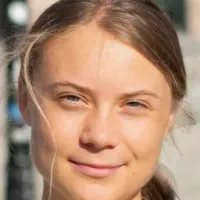
Greta Thunberg is a Swedish climate activist who gained international...

Barack Obama the th U S President - was the...

Hillary Diane Rodham Clinton is a prominent American politician lawyer...
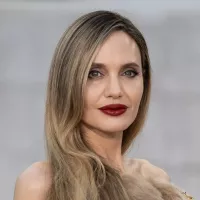
Angelina Jolie is a prominent American actress filmmaker and humanitarian...
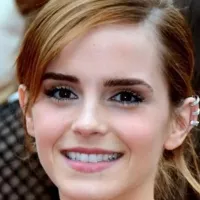
Emma Watson is a highly successful English actress recognized as...
Apple TV is a digital media player and microconsole by...
Trending
28 minutes ago Ski Mountaineering to Debut at Milan-Cortina Winter Olympics in 2026.
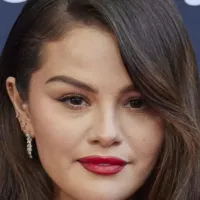
1 hour ago Selena Gomez's Spiced-Plum Manicure and TikTok Clone Theory Spark Buzz
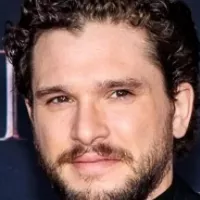
1 hour ago Kit Harington and Sophie Turner Gag After On-Screen Kiss in New Movie

1 hour ago Trump administration updates, Iran nuclear efforts, and White House controversies unfold.
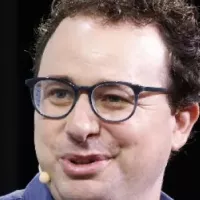
1 hour ago Dario Amodei Highlights India's Central Role in Shaping AI's Future at AI Summit.
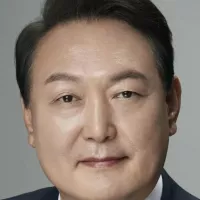
2 hours ago Yoon Suk Yeol, South Korean ex-president, receives life sentence for insurrection and martial law.
Popular

Jesse Jackson is an American civil rights activist politician and...
Randall Adam Fine is an American politician a Republican who...

Pam Bondi is an American attorney lobbyist and politician currently...

Barack Obama the th U S President - was the...

Martin Luther King Jr was a pivotal leader in the...

Ken Paxton is an American politician and lawyer serving as...
